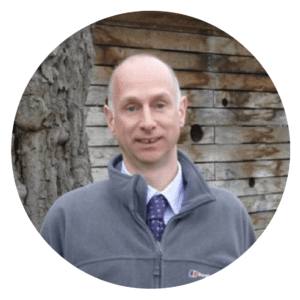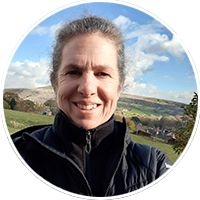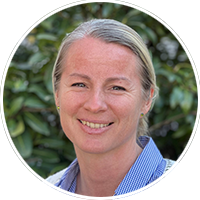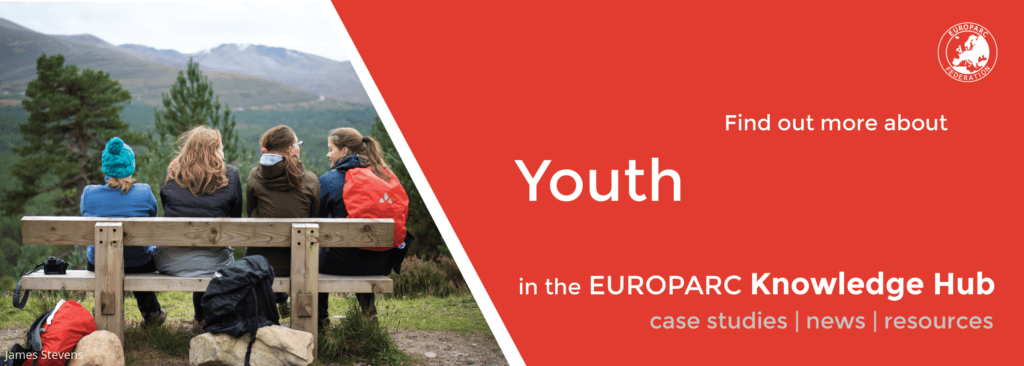Webinar: Ways to Wellbeing in Nature
We invite you to the next EUROPARC webinar “Ways to Wellbeing in Nature – Activating Parks and Protected Areas as natural health centres”.
- 14.12.2022
- 10:00 CET
- Participation is free, but registration is needed here
About this webinar
Scientific evidence indicates that people’s health and happiness increase when they are connected with nature. Yet we are experiencing tangible biodiversity loss associated with removal of places for nature being replaced by buildings, industry, roads and other infrastructure, not to mention the challenges of climate change.
Access to nature is essential for human health and Covid-19 lockdowns have unveiled how important green areas are for our mental and physical well-being.
Healthy Parks Healthy People is the Europe-wide programme developed by EUROPARC Federation to supports parks and Protected Areas at the national, regional and local level to deliver better outcomes for the health of people and nature.
In this webinar, we will dive into experiences from Parks and Protected Areas in England and Germany as natural health centres focusing primarily on mental health. We will look at the ‘Five Ways to Wellbeing’ approach to positive mental health and wellbeing in nature and show how the HPHPe toolkit can be a compass to support current and future planning and programme implementation of these and similar initiatives.
The programme
1. Setting the scene – Peter Rawcliffe, EUROPARC Federation Council
Welcome and introduction to the webinar
Five Ways to Wellbeing in nature
2. Case Studies
Connecting communities with nature to help support mental health through Green Social Prescribing – Peak District National Park Authority, England – Jo Hanney, Ranger
Green Care – Nature and Mental Health – Berchtesgadener Land Biosphere Region, Germany – Meike Krebs-Fehrmann, Scientific Officer
3. Using the HPHPe Toolkit to realise health projects – Bridget Finton, NatureScot
4. Final questions and conclusions – Peter Rawcliffe, EUROPARC Federation Council
Our speakers

Peter Rawcliffe – Head of People and Places Activity in NatureScot, and Chair of EUROPARC Federation’s Health and Protected Areas Commission
Peter Rawcliffe is both EUROPARC Federation Council Member and Vice-President. Additionally, he is a member of the IUCN specialist group on health and wellbeing and part of the current working group on COVID19 and Protected Areas. He has over 25 years of work experience and comes from a background of academic qualifications in the environmental and political sciences (BSc and PhD), consultancy work on planning, transport and conservation policy, and environmental education.

Jo Hanney – Learning and Discovery Ranger, Peak District National Park Authority (PDNPA)
Jo Hanney has over 20 years’ experience of creating and delivering engagement opportunities for the PDNPA. She is a skilled facilitator with experience of connecting with a wide range of audiences. She currently leads on the delivery of the “Health and Wellbeing” strand of the PDNPA’s Diverse Audience Plan (2020-2024); one of the outcomes of this is “A National Park loved and supported by diverse audiences”. She is happiest when she is out and about in nature in the Peak District National Park introducing this protected landscape to new audiences.



New podcast: The EUROPARC Youth Manifesto
EUROPARC Podcast: Voices from the Parks brings inspiring stories from across the network when you’re on the go. In this episode we share the story of the EUROPARC Youth Manifesto as we did for the EU’s 4th Public Participation and Deliberative Democracy Festival.
What are we talking about?
In the European Year of Youth, the EU held its 4th Public Participation and Deliberative Democracy Festival, with a focus on youth involved in democratic decision-making processes. EUROPARC engaged with this festival by showcasing the EUROPARC Youth Manifesto.
In this episode, you will learn how EUROPARC Federation collaborates with youth to share their visions and voices with their communities and help them create a better future. The Manifesto is one of the sources of ideas and inspiration for decision-makers in Protected Areas and rural communities to ensure the involvement and empowerment of young people. Its implementation has started in at least 4 countries and is a top priority for EUROPARC.
In other words, loads of inspiration to be found in our new episode! You can listen to it here, or find our podcasts on Anchor.fm channel and all major podcast platforms!
Call for tenders for evaluation of stakeholder engagement
Within the EU Horizon project NaturaConnect, we are looking for an external service to produce an independent evaluation of the stakeholder engagement of the project.
NaturaConnect (Project: 101060429 (HORIZON-CL6-2021-BIODIV-01)) is a four-year project running from July 2022-August 2026. Together with key stakeholders, NaturaConnect will co-develop knowledge, tools and capacity building programmes to support Member States in implementing an ecologically representative, resilient and well-connected trans-European nature network (TEN-N) that builds on the existing network of protected areas. The project includes an integrated stakeholder engagement process, which is underpinned by theory and practice addressed in the BiodivERsA Stakeholder Engagement Handbook (Durham et al. 2004) and which follows approaches of appreciative inquiry.
Purpose of the tender
The main output of this consultancy is an assessment of the stakeholder engagement events of the project, which will be conducted by different project partners.
The contractor shall provide a mid-term review of the stakeholder engagement events and a final report. Specifically, the contract requirements are to:
- Recommend and provide advice on feedback methods to be used by project partners for their specific types of engagement events (face to face meetings, workshops, online workshops etc.) in various contexts and countries. The contractor shall ensure a systematic collection of information along the different project partners. The collected information will be shared with the contractor for further analysis and the overall evaluation.
- Collect and analyse feedback from participants of events and stakeholders in the form of qualitative interviews, surveys or any other suitable innovative forms for data and information collection. The contractor will be responsible to design and conduct interviews with key stakeholders and to analyse the results.
Based on this, an overall evaluation (mid-term review and final review) shall be developed. The mid-term review is an important deliverable in January 2024 and shall include recommendations for the following stakeholder engagement taking place until the end of the project (2026).
As part of the application, the contractor is asked to provide a preliminary evaluation plan, which shall be further developed during the first month of the contract. Please consider the tender specifications carefully.
The deadline for applications is the 6th of December 2022, 23.59 CET.
Successful candidates will be invited for an interview between the 12-16th of December. The contract will be awarded not later than 19th of December with contract starting date on the 5th of January 2023.
Please find the tender specifications by clicking below
Protected Areas and Outdoor Sports. Best Friends Forever?
At the 6th Outdoor Sports Euro’Meet 2022, EUROPARC organised the workshop “Protected Areas and Outdoor Sports. Best Friends Forever?”. The event took place in #Silkeborg, the Outdoor Capital of Denmark, between the 14-16 of September 2022.
Background of the event
Outdoor Sports are an excellent way to connect people to nature. However, conflicts arise when sports are practised unsustainably, or when different users have conflicting interests. EUROPARC has signed a memorandum of understanding with ENOS, the European Network of Outdoor Sports, to tackle these challenges together. As such, we were invited to take part in the 6th Euro-Meet earlier this year.
The event followed the theme “Green Sports for a Greener and Healthier Europe“. EUROPARC’s Teresa Pastor presented at a poster session and also led a workshop at the event.
The workshop – Sharing expectations and triggering ideas
To set the scene, Teresa presented the results of a survey, which was conducted in the framework of the SEE project. The topic was the perceptions that Protected Areas managers have about Outdoor Sports practitioners.
The feedback revealed that 45% of the respondents were positive about Outdoor Sports for the benefits they bring. Nonetheless, 17% had a less-positive perception, due to the negative socio-environmental impacts Outdoor Sports can exert, while 48% positioned themselves as neutral.
With outdoor sports practitioners’ numbers steadily increasing, a risk of a shift from neutral to a negative perception is arising.
The workshop was a perfect venue to discuss different ideas in favour of a constructive dialogue to better accommodate Outdoor Sports in Protected Areas.
The first question we asked ourselves was: who should we hold responsible for the dialogue between Protected Areas and Outdoor Sports?
The general opinion was that the responsibility should be equally shared between Protected Area managers and Outdoor Sports organisations. Still, the process should be triggered by the Protected Area manager, as they are responsible for managing the natural space. Third parties that play a role are individual practitioners, however, they are more difficult to approach. Still, it is important to underline that each Outdoor Sports practitioner holds the responsibility for their own actions.
The workshop also gave the opportunity for those engaged in Outdoor Sports, to express what they expect from Protected Areas:
- To receive more and better information about:
The impacts Outdoor Sports create on the Protected Area;
Management decisions;
Where they are allowed to go, i.e. better MapTrails; - To offer better designed, more suitable facilities. Especially for Outdoor Sports practitioners to be able to co-participate in their design to ensure they are fit for the purpose. Recreational infrastructure and facilities are key management tools;
- A better understanding of each Outdoor Sports specific features;
- To be open for dialogue, including different user groups;
- To be open to partnerships.
In turn, Protected Areas expressed what they expect from Outdoor Sports:
- Respect for rules;
- Respect for the environment and the site;
- Willingness to participate in open dialogue;
- More pro-activeness in proposing actions and participating in co-design.
Our steps for dialogue
Finally, three basic steps to starting dialogue were agreed:
- Awake the interest;
- Raise awareness about the main impacts and issues associated with Outdoor Sports;
- Improve knowledge about impacts through consultation with different Outdoor Sports groups in order to make knowledge-based decisions.
The group concluded that there is a genuine interest from both sectors to mutually understand each other and to start dialogue and cooperation in order to stay best friends forever!
Want to know more?
If you are interested in further outcomes of the events, as well as other presentations, you can find them all on the ENOS’ website here.
We also launched a second call for feedback on the topic: Sustainability and Environmental Education in Outdoor Sports: Survey on Outdoor Sports in Protected Areas, and are keen to get your views! The questionnaire takes approximately 15 minutes to fill in and is available in four languages (English, French, German, Spanish).
